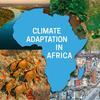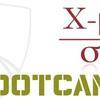Price:
595 EUR
Contact
University of Colorado Boulder
Description
Course 4 of Statistical Thermodynamics addresses dense gases, liquids, and solids. As the density of a gas is increased, intermolecular forces begin to affect behavior. For small departures from ideal gas behavior, known as the dense gas limit, one can estimate the change in properties using the concept of a configuration integral, a modification to the partition function. This leads to the development of equations of state that are expansions in density from the ideal gas limit. Inter molecular potential energy functions are introduced and it is explored how they impact P-V-T behavior. As the density is increased, there is a transition to the liquid state. We explore whether this transition is smooth or abrupt by examining the stability of a thermodynamic system to small perturbations. We then present a brief discussion regarding the determination of the thermodynamic properties of liquids using concept of the radial distribution function (RDF), and how the function relates to thermodynamic properties. Finally, we explore two simple models of crystalline solids.
Specific details
Category of Education
Physical Science







 How to resolve AdBlock issue?
How to resolve AdBlock issue? 


Comments (0)